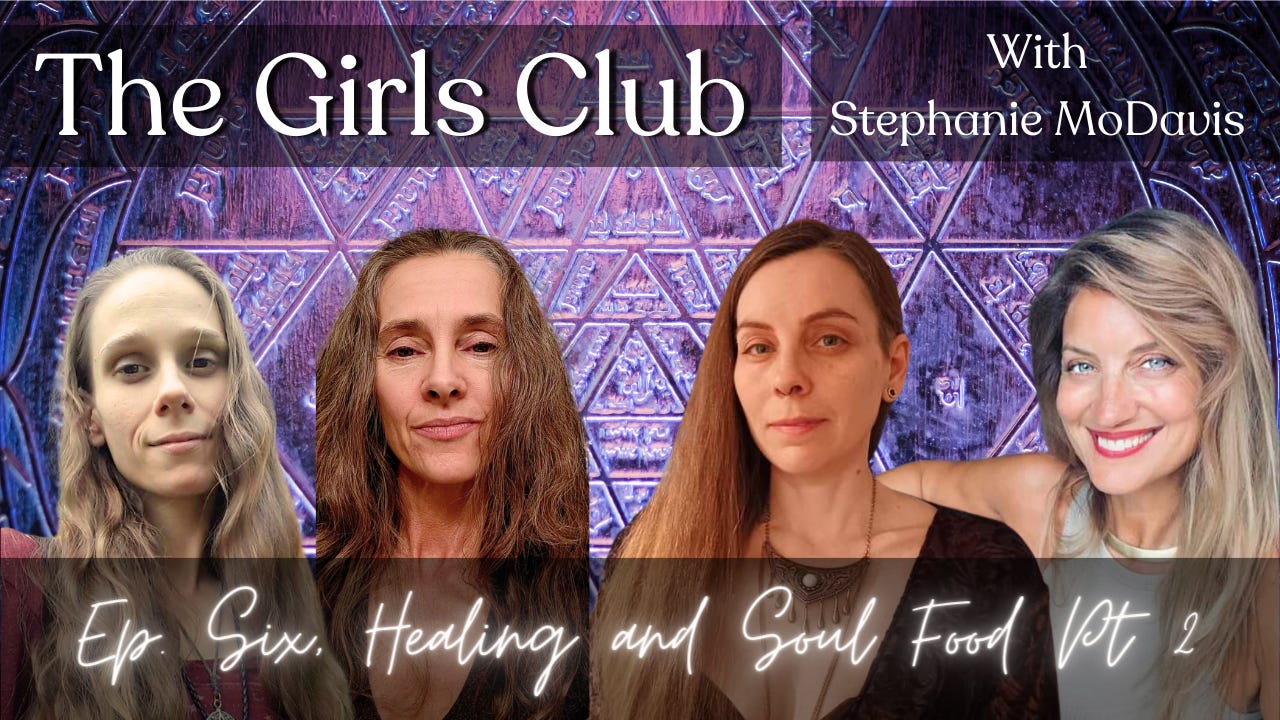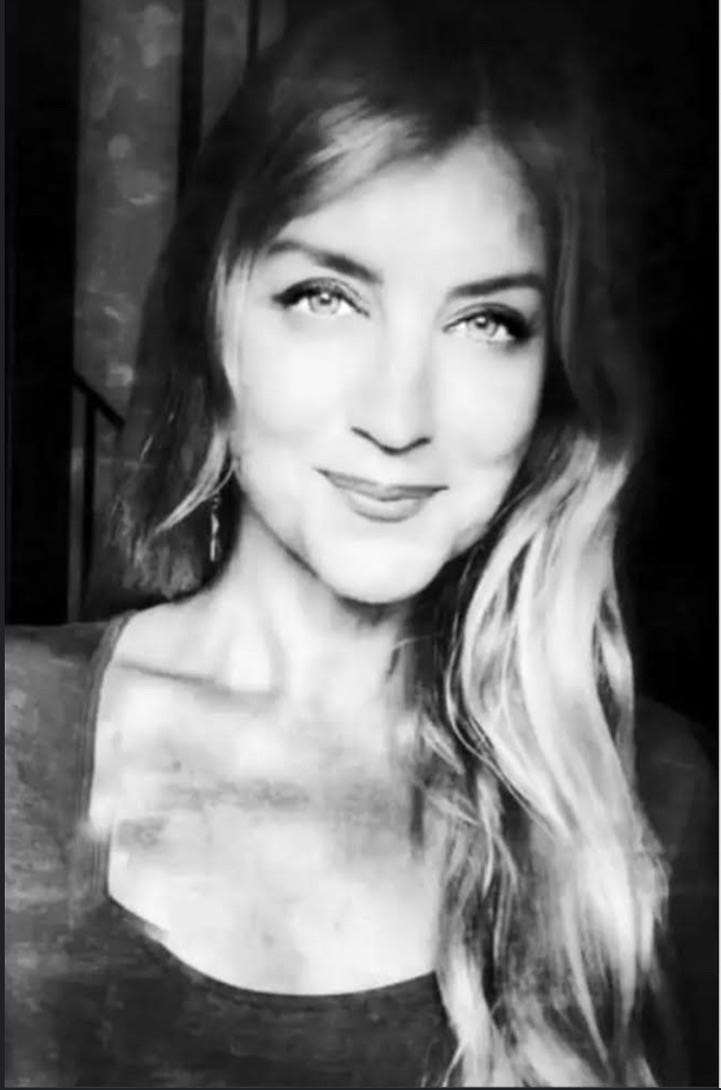How does food and medicine affect each other? How does it affect each other? Join us this month with Stephanie MoDavis on the topic.

This month let's talk about how food is used in culture, as conditioned habits, and what happens when we do not take care in our actions about how we use food.
Food has become a staple emotion that connects to our need to be with others and in some unhealthy ways such as our need to fill unchecked emotional voids within our lives. Food is used as a way to get people together (for the most part) rather than properly understanding how food is used for nourishment and medicine.
Today healthy food is too expensive and unhealthy, processed food is cheap. This makes it difficult for anyone to put too much thought into any concept of healthy eating. Or, God forbid, as medicine to maintain health and create health.
Food is no longer looked at as the key to health it should be used as. We have taken for granted this special gift. Nowadays, everyone has the "solution" to healthy food and yet almost nobody is healthy. Even trained dietitians who train in medical schools struggle to create something truly healthy for a patient's diet. Many dietitians have no real ability in creating a healthy and structured diet. They are trained by the establishment that exists, and, in my opinion, this can be questionable training as best. Not enough of nature's knowledge is given any consideration throughout the gained knowledge of man's intervention.
The establishment and all entities that are connected to this are a fragmented, broken and dysfunctional system and not even one single medical professional seems to be on the same page entirely.
People are wondering why they are sick. This is not a mystery to me. It is glaringly obvious that the only true crisis we have on the planet is a health crisis and that starts with our food and medicine. Not just what we are consuming but why and how. Food and medicine should be thought of and taught to be part of the same science but in today's modern world they are completely separate from each other. These are some of the things about food that cause issues in our society today.
-
Bleaching food in culture.
-
This practice of bleaching food is an entirely aesthetic one. Yes, some foods are naturally white but not on a large scale. Nature colors things in a more natural way on its own. Eggs that can be white are not bleach white, sugar can be white but is not bleach white, salt can be white but is not bleach white. Even things in nature that can be white food manufactures will bleach our food because we have been trained subconsciously that we will only accept "pure and clean" looking food.
-
When you think about it this way what kind of conditioned responses can this lead to in our lives? We end up shunning away from things that are not aesthetically pleasing in every aspect of our lives.
-
All things that we consume is bad for us if we abuse it however the key is moderation. Practice self-control.
-
Nature has everything we would need as far as a healthy diet goes but it takes an individual's personal responsibility in order to create that healthy diet for oneself. Stop leaving it to others to tell you how to take care of your own body.
-
Food operates as nourishment, medicine, emotional comfort, ceremonial, traditional, relational experience and self-care. Why? What is the purpose?
-
Food has both positive and negative aspects in our history. It takes, again personal responsibility, to use our discernment and figure out what is healthy and what is unhealthy.
-
In our ancient world food was treated with care and how we used it in regard to our lives were with respectful consideration. This means that these people understood that moderation was important. Only the foolish would disrespect their physical bodies by overeating and abusing "feel- good" food in order seek pleasure. This is the only reason people overeat. The act of overeating and eating for "comfort" is escapism and an aspect of fear.
-
Today food is overused as an excuse in order to force groups of people together and celebrate the traditions of overeating for pleasures or escapism. This has led into the only way that people connect with each other in an authentic way. No one is connecting based on who they are spiritually. The excuse is always food.
-
Today's food supply is full of chemicals and unhealthy elements, so we now have a compounded problem of unhealthy food gathering traditions and unhealthy illness causing food.
-
Yes, some of the traditions we have like using food to bring our families together, developing an actual healthy diet (through the work of personal research) and using it as medicine to help in alleviating illness are all good things and can be used as community empowering events but the use of food for this must be coupled with some kind of pro-action and building proper relationships outside of food connections.
-
Nature has most (if not all) the answers to health and wellness. Some of these answers may still be in the realm of mystery however we discover these mysteries by using man's intuition and intervention in order to uncover them. How do we balance this relationship within ourselves and encourage this understanding and active behavior in our environments?
-
This requires individual personal responsibility. This takes time and care and will. This takes the practice of thought, emotion and action. All answers one gets from an external source is for the consideration file in one's head till one can confirm the validity of whatever information. It is important to remember that one should look inward and search for the answers spiritually as well.
-
We now have in the modern world an official medical "authority" which was not established in America until 1765 by John Morgan and William Shippen of Philadelphia, both graduates of Edinburgh, founded the first medical school in the country, now part of the University of Pennsylvania. Additional medical schools were founded at Kings College (now Columbia University) in 1768 and at Harvard in 1783) that at first may have had good intentions but has slowly been corrupted and infiltrated by the parasite class making our knowledge about health and illness distorted. This has all but removed the ability we all have to have proper discernment about our health. Instead of listening to our own internal compass on what direction to go into we scurry like starving, sick animals towards the nearest medical "authority" that says they have all the answers.
-
As a side note, authentic doctors who follow the true code of health will be able to say to you, "I don't know. I will have to look into that for you." If your doctor acts like you are not a normal person with capable thought ability and treats you as if you have to do as they say or else, then I would suggest getting a new doctor. Any doctor pretending that they know any answer when, in fact they do not, and will administer healthcare to any human being has no business operating in the health industry.
-
The best way to go about understanding our own personal health is to go inward, do personal research and learn how to discern what makes sense and what sounds like nonsense or rather ... non-science. Stop just believing others and learn the information it takes to KNOW and not just believe.
-
Understanding the difference between ancient food knowledge vs. modern day food knowledge is all about research. Research GMO, Monsanto, farmers being pushed out in the modern world by corporate industry, about what the FDA is and WHY it exists. Read books (don't just watch YT video after YT video by self-proclaimed experts with "insider contacts"). Learn history. Learn about what doctors are doing today and what they did in the past. Read the back of labels in the grocery store (even if other people think your being stupid for it). Learn how to grow food and herbs. Practice thought, emotion and action within your life when it comes to food and health, and you will reap those rewards. It requires care and will.
-
The FDA (The Food and Drug Administration) was established June 30th in 1906 and was first created to enforce the Pure Food and Drug Act that passed in that same year. In this capacity, the FDA is charged with protecting the health of the US public, to ensure the quality of its food, medicine, and cosmetics. President Theodore Roosevelt signed the Food and Drugs Act, known as the Wiley Act, a reference to chemist Harvey Washington Wiley, MD. Being referred to as the father of the FDA, Dr. Wiley demonstrated his concern about chemical preservatives in foods by calling them adulterants. This prohibited the sale of miss-branded or adulterated food and drugs in interstate commerce and laid a foundation for the nation's first consumer protection agency. The agency was charged with protecting the health of the US public, to ensure the quality of its food, medicine, and cosmetics. Standards of Identity (SOI) was established in 1939, and since then, the agency has established more than 250 SOIs. Products like milk, milk chocolate, various breads, peanut butter, and ketchup have a SOI. For the first time, the FDA had authority to regulate medical devices and cosmetics, and to establish standards for foods. Drugs and devices were required to provide adequate directions for use; falsely labeled uses were miss-branded; and there was no longer a need to establish intent to defraud to prove miss-branding.
What types of food promote health vs what types of food promote sickness?
-
Foods that promotes health is anything that is grown naturally and with thought, emotion and action. It is food that has not been usurped by any state control.
-
Foods that promote sickness you can bet is almost EVERYTHING you will find in a grocery store. Including any chains stores like Trader Joes or Sprouts. All grocery stores no matter private or chain have a buying manger and that person can choose what to bring into the store and what not too. Some places will be better than others (so this requires trial and error as well as research on the individuals end) but the majority are just following the trends of what people are buying.
-
The challenge is to go into any grocery store and read the back labels. Find out what all the ingredients in these products really are. DISCERN what is acceptable and what is not. Meet the managers that control stock. See what kind of influence you can make on them in regard to what products to put on the shelf. This is a community effort.
-
How do we use food in our personal lives?
-
How and what do we instill food concepts in the lives of others?
-
How do we discern what is good and what is bad in regard to a healthy diet?
-
Who influences our decisions in this process and why?
-
Do we listen to our natural instinct when it comes to the consumption of nourishment, or do we allow an external "authority" to guide us on the matter?
Our Hosts:
Find out more about Brittany Ashby here:
https://linktr.ee/homeandhavenfarms
Find out more about Leslie Powers here:
https://alivethrive.life/
https://www.stephaniemodavis.com
https://www.awakeninghealthcare.com
Find it on Odysee here:
https://odysee.com/@CF_Girl:a/The-Girls-Club-Final-6:4?r=32qkaNuLzHDA4M8ntD72SLKp3oVNzquf
Find the Rumble here:
https://rumble.com/v4rlden-the-girls-club-apr-6-healing-and-generating-a-healthy-relationship-with-foo.html

